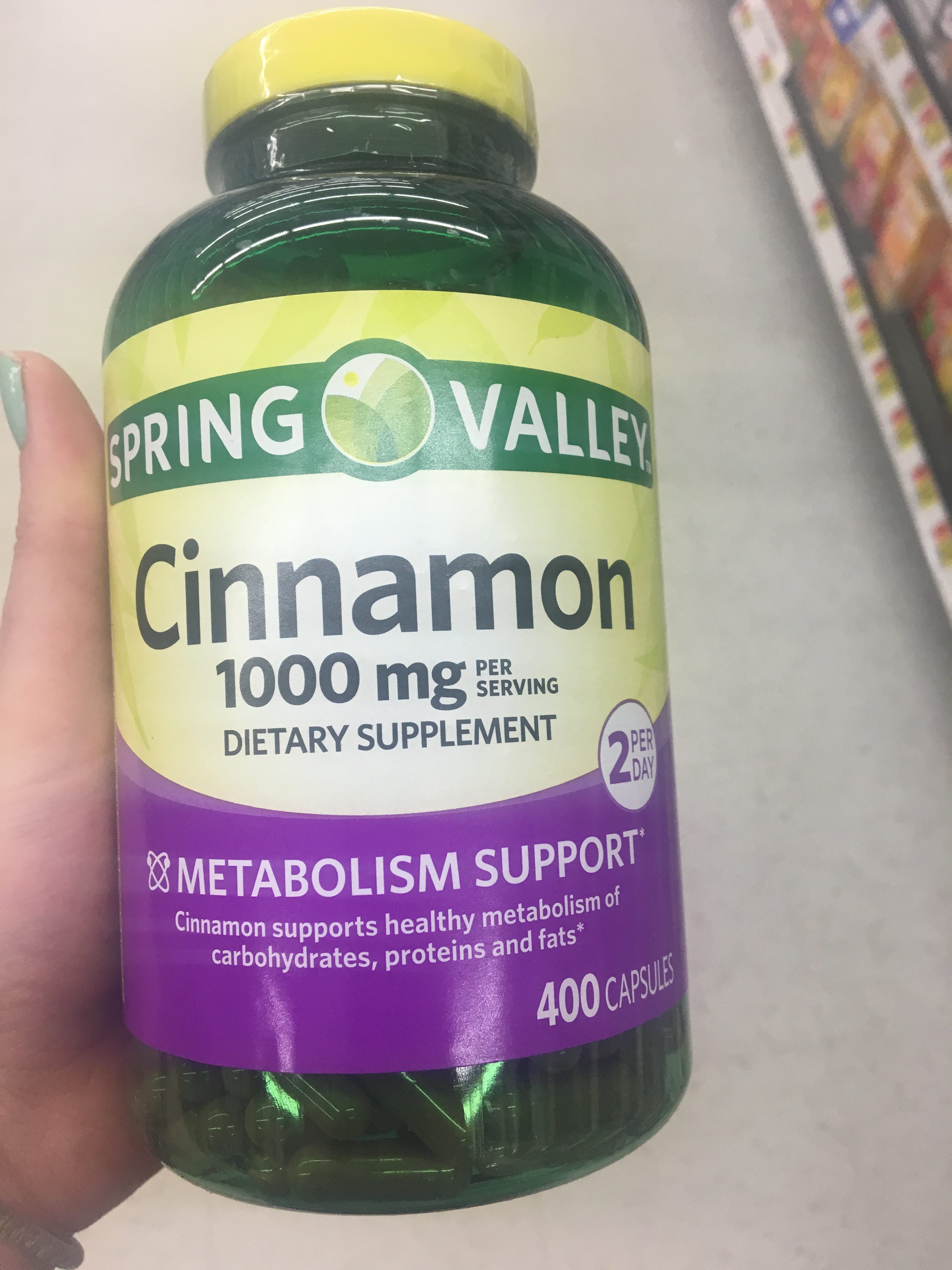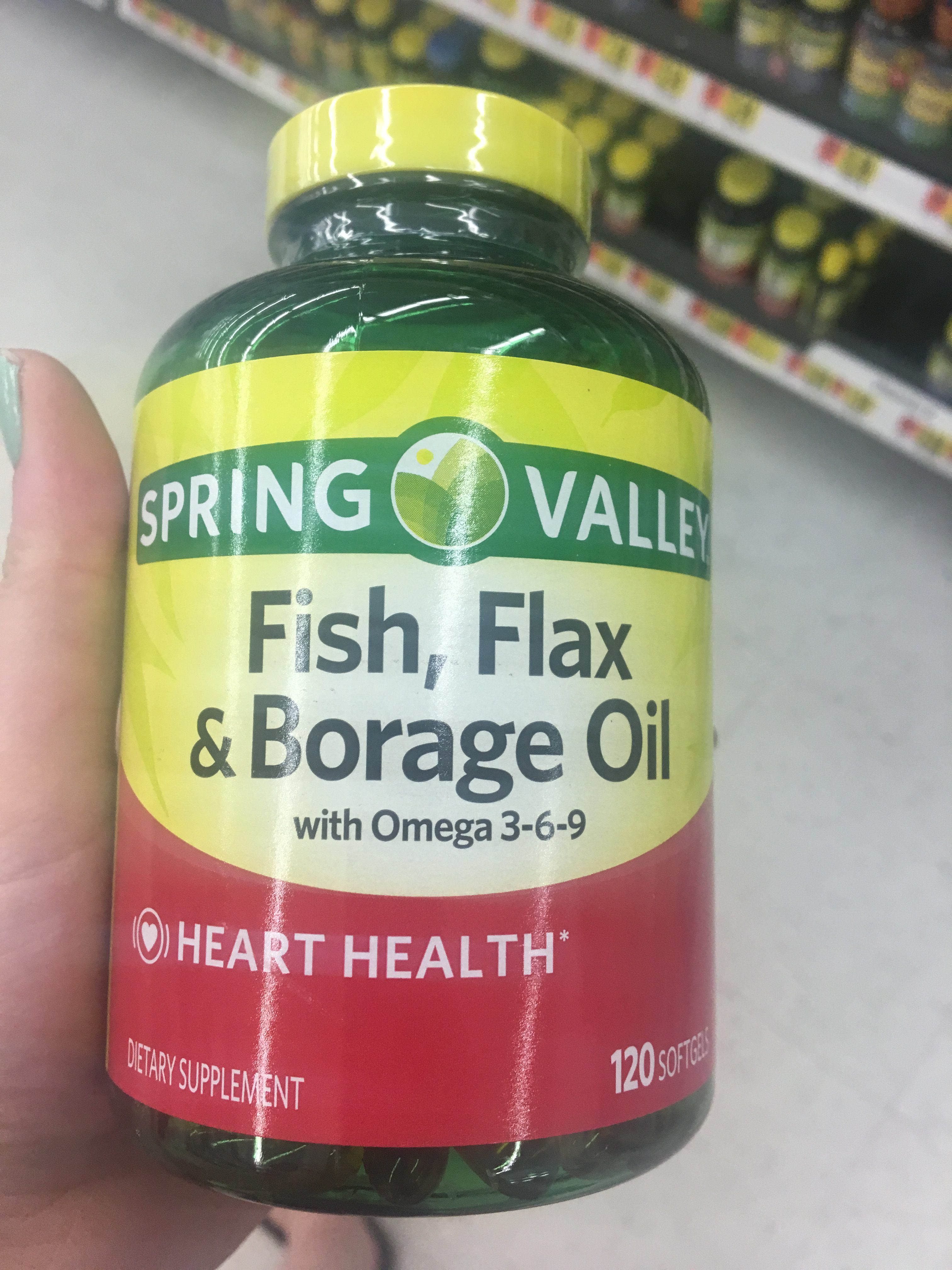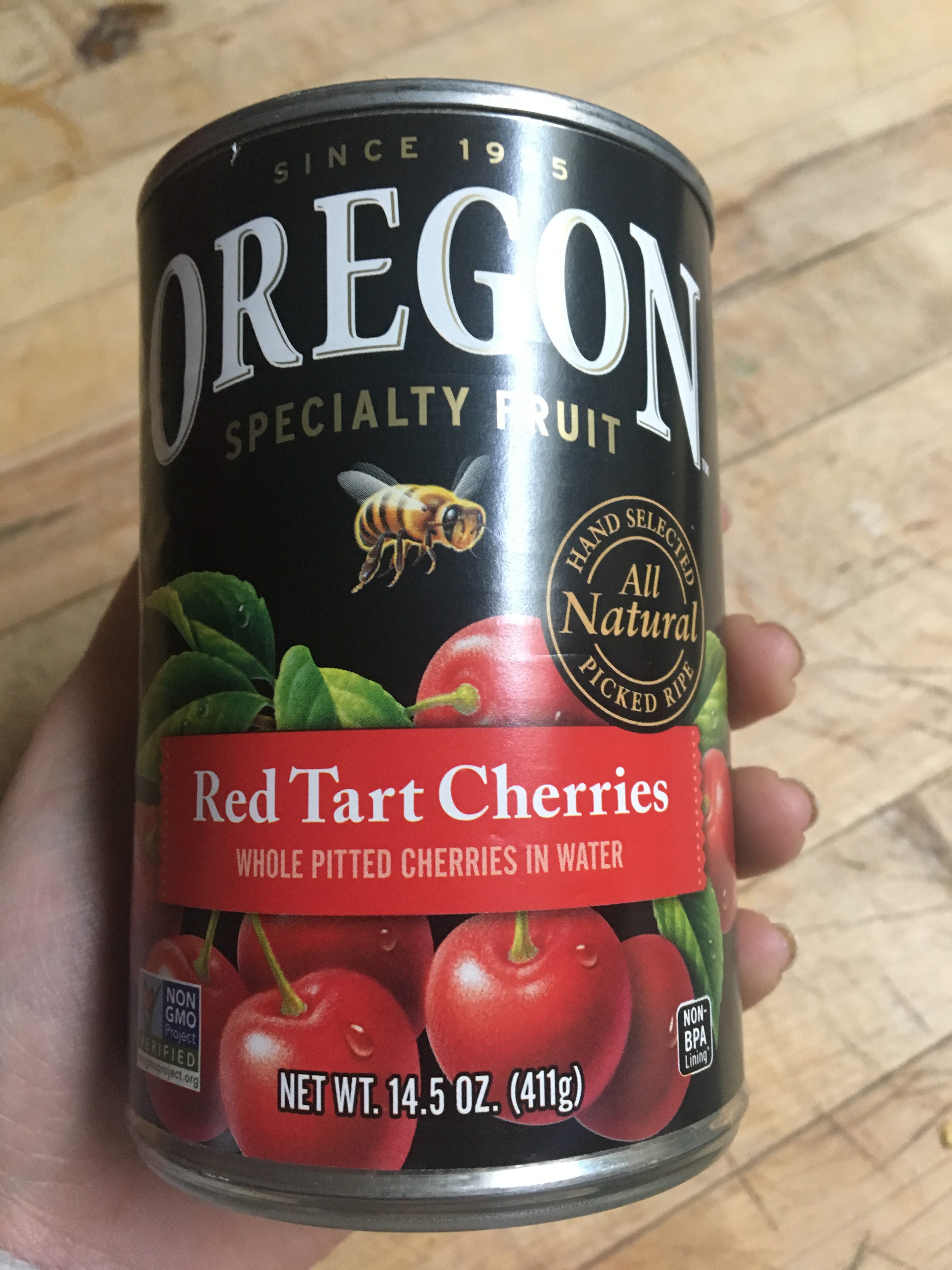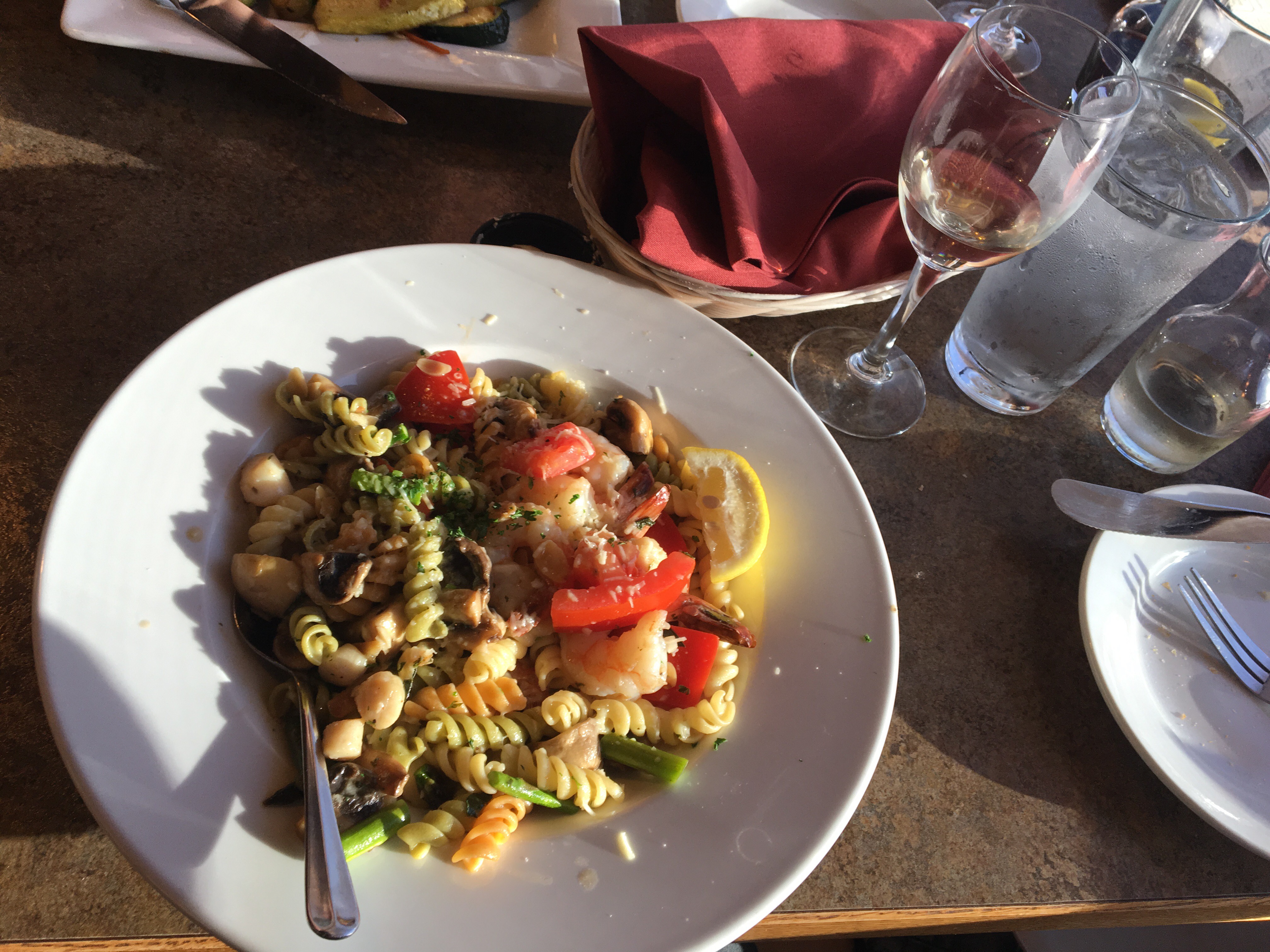Anti-Inflammatory Add-Ins and Supplements
When you’re aiming to be less inflamed, it can be worthwhile to look beyond regular foods to supplements and what I’m calling “add-ins” – foods/condiments to intentionally put on or in your food because of their anti-inflammatory benefits. Check out all the options:
1. Brightly-Colored Spices (like ginger, cinnamon, turmeric, etc)

Brightly-colored spices have high antioxidant content that can be powerfully anti-inflammatory. Several have specifically been researched and tested for efficacy in managing blood sugar in diabetes, though their anti-inflammatory properties can be beneficial for muscle soreness, recovery after exercise, and metabolic syndrome.1-4
You can take these supplements in concentrated capsules (stick to the recommended dosage) or make a concerted effort to add brightly-colored spices to your food regularly.
2. Fish Oil/Omega-3s/Borage Oil

Increasing intakes of omega-3 fatty acids have been demonstrated to reduce inflammation. They are currently being researched and tested for treatment of many health factors, from prevention of dementia (dementia rates decreased in 19 out of 22 reported studies in a review)5 and cancer to lower cholesterol.6-7
To increase your intake of omega-3s, you can eat more fish, walnuts, flax seed, and chia seeds. Chia is one of my personal favorites because it contains a high concentration of omega-3s and has nearly no flavor. I mix them into oatmeal, smoothies, and yogurt. If you take a capsule supplement, be sure to find one that states it is “burpless” or “enteric-coated.” That ensures the capsules go alllllll the way into your intestines before dissolving, preventing unpleasantly fishy-tasting burps/breath.
3. Tart Cherries

These tart little guys are becoming big news in the anti-inflammatory scene, largely for treatment of inflammatory joint pain caused by conditions like arthritis and gout. Some research with dosing tart cherry has shown similar decreases in pain to leading medications for arthritis and gout.8-10
You can eat them canned, dried, in supplement form, or drink 100% tart cherry juice.
4. Vitamin D
Vitamin D has been shown to be important not only for preventing cardiovascular disease, osteoporosis, and many types of cancers, but also plays a role in improving depression.5
We get a lot less vitamin D these days than we used to. Our primary sources are sunlight (15-20 minutes of sunlight helps our skin make its own vitamin D!) and fortified foods like milk, other dairy, and fruit juices. Supplements are also an option. Ask your doctor to check your vitamin D levels and if they are low, consider working on boosting your intake with food or supplementation.
1. http://journals.sagepub.com/doi/abs/10.3181/0902-MR-78
2. http://journals.sagepub.com/doi/abs/10.1177/193229681000400324
3. http://www.sciencedirect.com/science/article/pii/S2225411016300670
4. https://www.ncbi.nlm.nih.gov/pmc/articles/PMC3665015/
5. Pawlak, Laura. The Hungry Brain. 2012. Biomed Books. p. 177.
6. http://europepmc.org/abstract/med/2836574
7. http://www.tandfonline.com/doi/abs/10.1080/07315724.2002.10719248
8. http://www.sciencedirect.com/science/article/pii/S1756464614002886
9. http://www.sciencedirect.com/science/article/pii/S0166432803004650
10. http://www.tandfonline.com/doi/abs/10.1080/03009740600704155






Leave a Comment